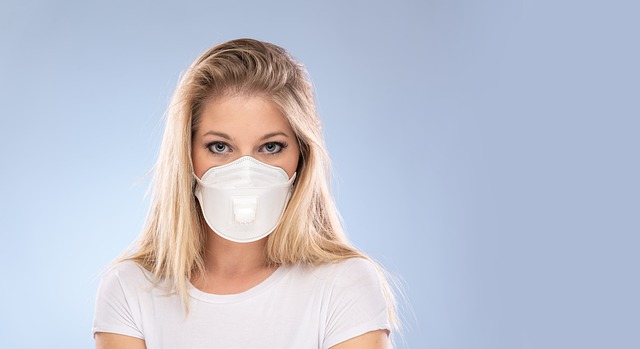Not wearing a face mask in South Africa is officially a criminal offence. On Monday, President Cyril Ramaphosa stressed that not wearing a mask in public is inconsiderate and will now not be tolerated.
In his address the president said: “We now know that the simplest and most effective way to reduce transmission of the coronavirus is to wear a cloth mask that covers the nose and mouth whenever in public. Until now the owners and managers of shops and public buildings, employers and operators of public transport have had a legal responsibility to ensure that everyone entering their premises or vehicle is wearing a mask.”
He went on to announce it would be compulsory for every person to wear a mask in a public space. And if you fail to comply, you will be committing a criminal offence.
“A person who does not wear a mask could be arrested and prosecuted. On conviction, they will be liable to a fine or to imprisonment for a period not exceeding six months or to both a fine and imprisonment,” said Ramaphosa.
During a media briefing outlining the new Alert Level 3 restrictions, Minister Bheki Cele told South Africans the last place they want to be is in jail but police will not waste time if you are not wearing a mask.
He also cautioned the public on how a criminal record could reflect badly on a job application and warned South Africans to comply or face the law. He did not give further information on what the fine would cost should you be caught without a mask.
Masks should be used as part of a comprehensive strategy of measures to suppress transmission and save lives.
Make wearing a mask a normal part of being around other people. The appropriate use, storage and cleaning or disposal of masks are essential to make them as effective as possible.
Here are the basics of how to wear a mask:
- Clean your hands before you put your mask on, as well as before and after you take it off, and after you touch it at any time.
- Make sure it covers both your nose, mouth and chin.
- When you take off a mask, store it in a clean plastic bag, and every day either wash it if it’s a fabric mask, or dispose of a medical mask in a trash bin.
- Don’t use masks with valves.
Why you should wear a mask:
1. They reduce viral transmission
Masks can reduce viral transmission by 70% if they are worn correctly, covering both your nose and mouth.
2. They prevent asymptomatic spread of the virus
An estimated 50% of transmission happens even before people start to develop coronavirus symptoms. By wearing a mask you reduce the risk of spreading your germs. You should also couple this with social distancing the good hand hygiene to further reduce passing on the virus.
3. You’re protecting others from the virus
Researchers say that when it is a communal effort, mask-wearing is most effective. It’s also been predicted that many deaths would have been prevented if 95% of the country wore masks. You are not just protecting yourself from getting the virus, you are protecting others by not passing it on to reach those with comorbidities who can die from it.
4. It is good hygiene
All medical professionals wear masks, this is to protect them from germs and illnesses, even before the pandemic. Wearing a mask will protect you from any high-risk situation, and even more so now in a pandemic.
Picture: Pixabay

